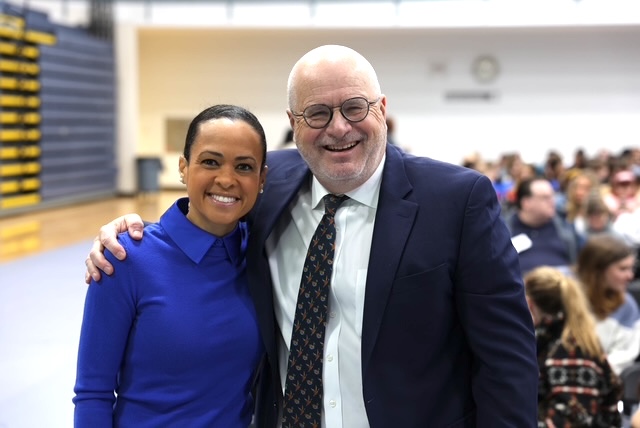The Science of Love, Marriage, & Divorce
April 2, 2019
In the United States, most people know that over half of marriages end in divorce, making it seem like the success of a marriage is just as cavalier as a flip of a coin. Yet, new research continues to deepen that oft-repeated statistic (for instance, that the 50-50 success rate is wrong) and show how science might help those of us keen on putting a ring on it succeed and how to help friends, family, and loved ones cope if dissolution is the answer.
Here is a round-up of some of the newest studies about love, marriage, and divorce:
- Genetic Variation May Factor into Happily Ever After: Public health and medical researchers studied 178 married couples in ages ranging from 37 to 90 years old. Participants completed a survey about their feelings of marital security and satisfaction and produced a saliva sample for genotyping. What researchers discovered was when at least one person had the genetic variation known as the GG genotype with the oxytocin gene receptor, the couple reported feeling more satisfaction and closer attachment. This study is believed to be the first to examine how the oxytocin receptor variant, OXTR rs53576, may affect marriage. Previous studies have linked the oxytocin receptor variant to emotional stability, empathy, and sociability. In the Yale University study, lead researcher Joan K. Monin, associate professor of public health, revealed that a couple’s individual GG genotypes account for a 4 percent variance in marital satisfaction. While that might not seem like a huge contribution to a happier marriage, it is interesting to consider how genes may influence our ease or challenge with social bonding and attachment. Further study with larger sample sizes will delve into how positive and negative experiences within a marriage lead to relationship quality over time. Here is to hoping we have or find someone with the GG genotype with the oxytocin gene receptor!
- The Golden Years Make For More Forgiving Partners: In a fascinating University of California-Berkeley study led by Dr. Robert Levenson, who studies human psychophysiology and affective neuroscience, he and his colleagues examined videotaped conversations of more than 150 heterosexual married couples in the San Francisco area across a 13-year period. What Levenson, the study’s senior author, and researchers found in this longitudinal study were as the married couples aged “they showed more humor and tenderness towards one another.” The December 2018 findings, which were published in the journal Emotion, discuss how, on the whole, positive emotional behaviors, such as affection, increase in long-term married couples, whereas defensiveness and criticism tend to lessen as marriages mature. As Levenson told the Berkeley News, “Our findings shed light on one of the great paradoxes of late life. Despite experiencing the loss of friends and family, older people in stable marriages are relatively happy and experience low rates of depression and anxiety. Marriage has been good for their mental health.”
- How Prosperity Affects Educational Attainment for Children of Divorce: Sociologists Jennie E. Brand, Ravaris Moore, Xi Song, and Yu Xie write in the Proceedings of the National Academy of Sciences of the United States of America about how divorce affects children’s educational attainment and their results are surprising. As Time Magazine’s editor-at-large Belinda Luscombe reported, parental divorce tends to more likely affect children’s completion rates for high school and college if the divorce was unexpected. In other words, if the parents were educated, financially stable, and the family planned, a divorce may serve as a greater disruptive force and shock for these children. Whereas, in high-conflict marriages where divorce was likely, the dissolution proved to be less disruptive and, in some instances, beneficial to children in comparison.
- The results are complicated as they seem to indicate that family shocks and disruptive events do not faze high-conflict, less financially secure families. Notsomuch. As the authors write, “That is, for these children, parental divorce is but one of many disadvantaged socioeconomic and family events faced during childhood, rendering the effects of any particular event less disruptive and less severe.” In other words, divorce is but one of many mitigating factors children will face in an unequal world.
- Whereas, the study reveals that prosperity and the frailty of the privileged may make divorce such a family shock that children’s educational attainment suffers from the dissolution.
While success in love and marriage can often be attributed to mystical factors, science may show us otherwise. The promise of future patience and perseverance may help some couples soldier on within a marriage. Our genetic dispositions might help us better understand how our attachment styles can manifest both in nature and the environment and may ultimately affect marital satisfaction. Lastly, money cannot buy more affluent children everything, contrary to the recent college admissions scandal. Current sociological research suggests that for those children whose parents’ divorce was less likely due to socioeconomic factors may, in fact, experience lower levels of educational attainment. Science for thought, to be sure.





